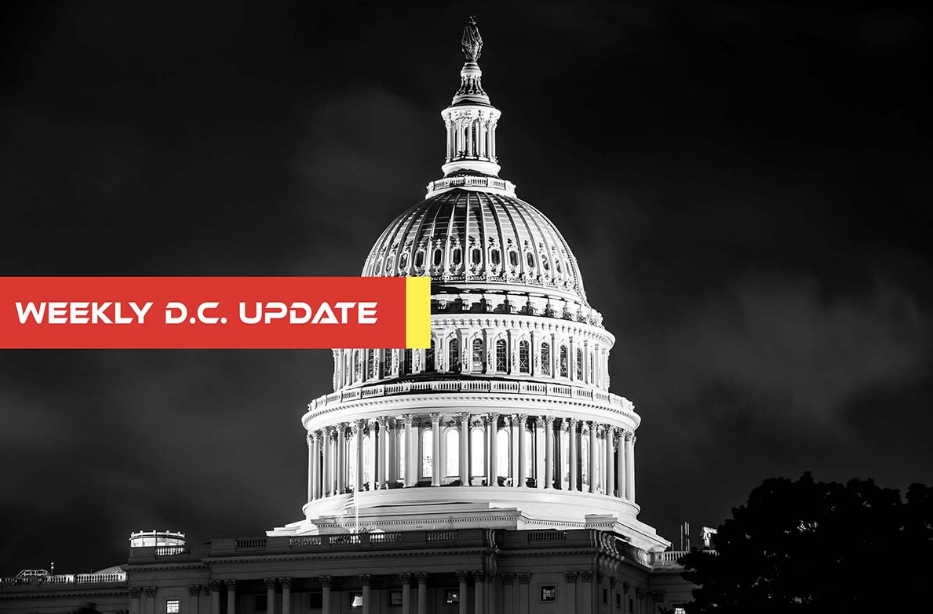WASHINGTON — In addition to articles already covered by Native News Online, here is a roundup of other news released from Washington, D.C. that impacts Indian Country recently.
Legislation Introduced to Assist Tribes Access Tax Programs
On Thursday, U.S. Representatives Gwen Moore (D-WI) and David Schweikert (R-AZ) introduced the Tribal Tax Investment and Reform Act, legislation to ensure tribal governments can access, on an equal basis with state and local governments, tax programs and economic incentives to empower tribal nations to better meet the economic needs of their members and communities.
A key provision in this legislation is the repeal of the “essential government function” test which has unfairly prevented tribal governments from being able to use tax-exempt government bonds in the same way state and local governments can. These bonds are useful tools for financing important economic development activities such as housing, infrastructure, and public parks.
This legislation also modifies the Low-Income Housing Tax Credit to make all tribal areas “difficult development area” so they automatically qualify for the 30% basis boost – meaning more credits would be available to cover the costs of a housing project in Tribal Nations financed with these tax credits. The Low-Income Tax Credit is our nation’s best tool for increasing the supply of affordable housing and rental units, but tribal governments face systemic barriers to accessing this credit.
Newly elected NAFOA President Rodney Butler, chariman of the Mashantucket Pequot Tribal Nation. weighed in on the legislation:
“This legislation is a significant step forward for tribal tax parity, and critical to spur business development in Indian Country. Allowing tribes greater access to tax-free bonds and making a much-needed increase in available credit will help create jobs and economic growth. Additional changes in the legislation, such as those to the New Market Tax Credits or General Welfare, will help bring the federal tax code more in line with the treaty obligations of the federal government. NAFOA strongly supports the ‘Tribal Tax and Investment Reform Act’ introduced by Congresswoman Moore and Congressman Schweikert, and looks forward to working together to ensure its enactment for Indian Country.”
NCUIH Recognized the Members of Congress for Their Work in Advancing the Health of Native People
The National Council of Urban Indian Health (NCUIH) presented four Congressional Urban Indian Health Champion Awards to Members of Congress for their efforts to advance urban Indian health during its 2024 Annual Conference: Sustaining Traditions: Culture, Identity, Health.
Representative Raul Ruiz, M.D. (D-CA-25), Representative Don Bacon (R-NE-02), Senator Markwayne Mullin (R-OK), and Senator Ben Ray Luján (D-NM), were recognized as Members of Congress who have demonstrated outstanding commitment and leadership in advocating for the advancement and improvement of urban Native health and health care.
These individuals have gone above and beyond in their efforts to champion legislation, policies, and initiatives that promote the health, welfare, and rights of urban Native peoples, and have a proven track record of collaboration, bipartisan cooperation, and effectiveness in advancing legislative agendas that address critical issues relating to urban Native health. NCUIH thanks the awardees for their dedication to upholding the federal trust and treaty obligation to provide healthcare services to all American Indian and Alaska Native people, regardless of where they reside.
Native Farm Bill Coalition Statement on Recently Released Farm Bill Summaries
Shakopee Mdewakanton Sioux Community Chairman Cole Miller and Intertribal Agriculture Council CEO Kari Jo Lawrence, Co-Chairs of the Native Farm Bill Coalition released the following statement regarding this week’s release of bill summaries by the House Agriculture Committee Republicans and the Senate Agriculture Committee Democrats:
“Indian Country is a leading force in American agriculture, with more than 80,000 individual Native producers contributing $6.4 billion to the industry. In many rural communities, Tribes are the main economic drivers of development and infrastructure, requiring Tribally tailored support from USDA. We are excited to see positive momentum in discussions surrounding the next Farm Bill including Tribal-specific provisions in both the House and Senate bill summaries.
We appreciate the bipartisan efforts to ensure that measures which are important to Tribes and Native producers were included in the bill summaries; however, more could be done to address the critical needs of Indian Country in the Farm Bill. We look forward to working with Congress to further strengthen provisions that expand Tribal self-determination and self-governance, prioritize Tribal sovereignty, promote parity, eliminate unnecessary barriers to nutrition assistance programs, and increase access to critical USDA programs.”
View a summary of Tribal references in the House and Senate Agriculture Committee summaries.
About the Author: “Native News Online is one of the most-read publications covering Indian Country and the news that matters to American Indians, Alaska Natives and other Indigenous people. Reach out to us at editor@nativenewsonline.net. “
Contact: news@nativenewsonline.net
